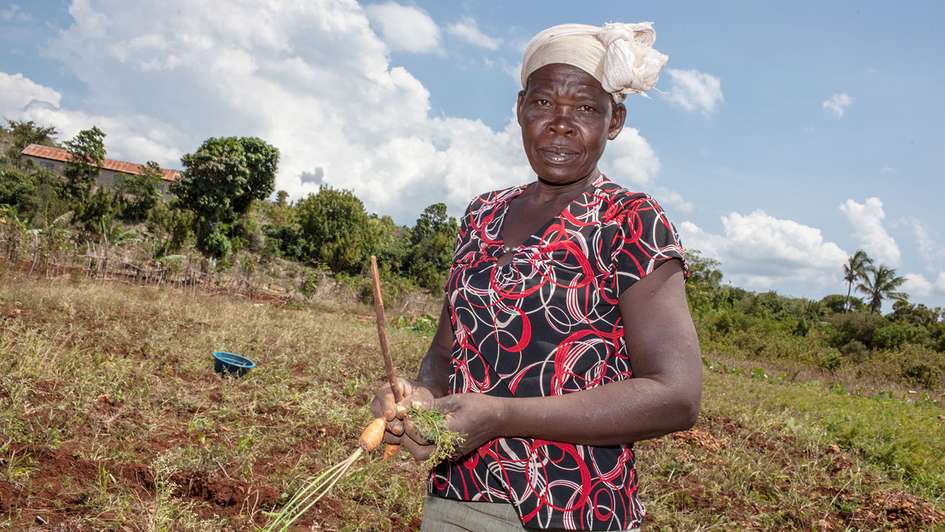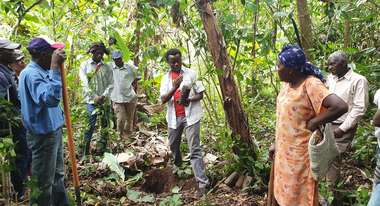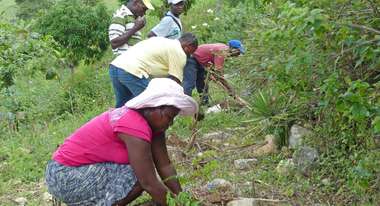Climate Change, Corruption and Unrest are Causing Increased Hunger in Haiti
35 percent of the population in Haiti are heavily dependent on food aid.

Bonn, 2019-11-27 Nearly ten years after the devastating earthquake, Welthungerhilfe and other international aid organisations are warning that hunger is on the rise again in Haiti. A new study by the United Nations and the Haitian government shows that the nutrition situation has deteriorated massively, and 35 percent of the population are now heavily dependent on food aid. The organisations fear that the situation will get worse over the next year, leaving four million people without sufficient food.
There are various reasons for the desolate state of the country. Increasing prices for raw materials, devaluation of the local currency against the dollar, corruption, and the deterioration of the security situation after the unrest, have severely limited access to food for the poorest households. The effects of climate change and a drought that has persisted since 2018 have also hit agriculture especially hard.
“Agriculture plays a key role in the Haitian economy, as it employs half of all workers. However, most small farmers have less than two hectares of land to feed their families. Haiti has been hit particularly hard by the effects of climate change. Rural Areas are marked by logging and deforestation. Cities are located on the coast, by rivers, or on mountainsides, so floods and landslides have repeatedly destroyed livelihoods. People no longer have any resources cushion this emergency situation. This means that the results of the 25th World Climate Conference in Madrid play an important role for Haiti”, explains Mahamadou Issoufou-Wasmeier, Regional Director for the Caribbean, describing the difficult situation in the country.
Welthungerhilfe and nearly 30 organisations are demanding that the international community should provide more resources for Haiti. Local produce should be prioritised for food aid, to boost the local economy. There must be support for monitoring and early warning systems, so future crises can be better managed.







